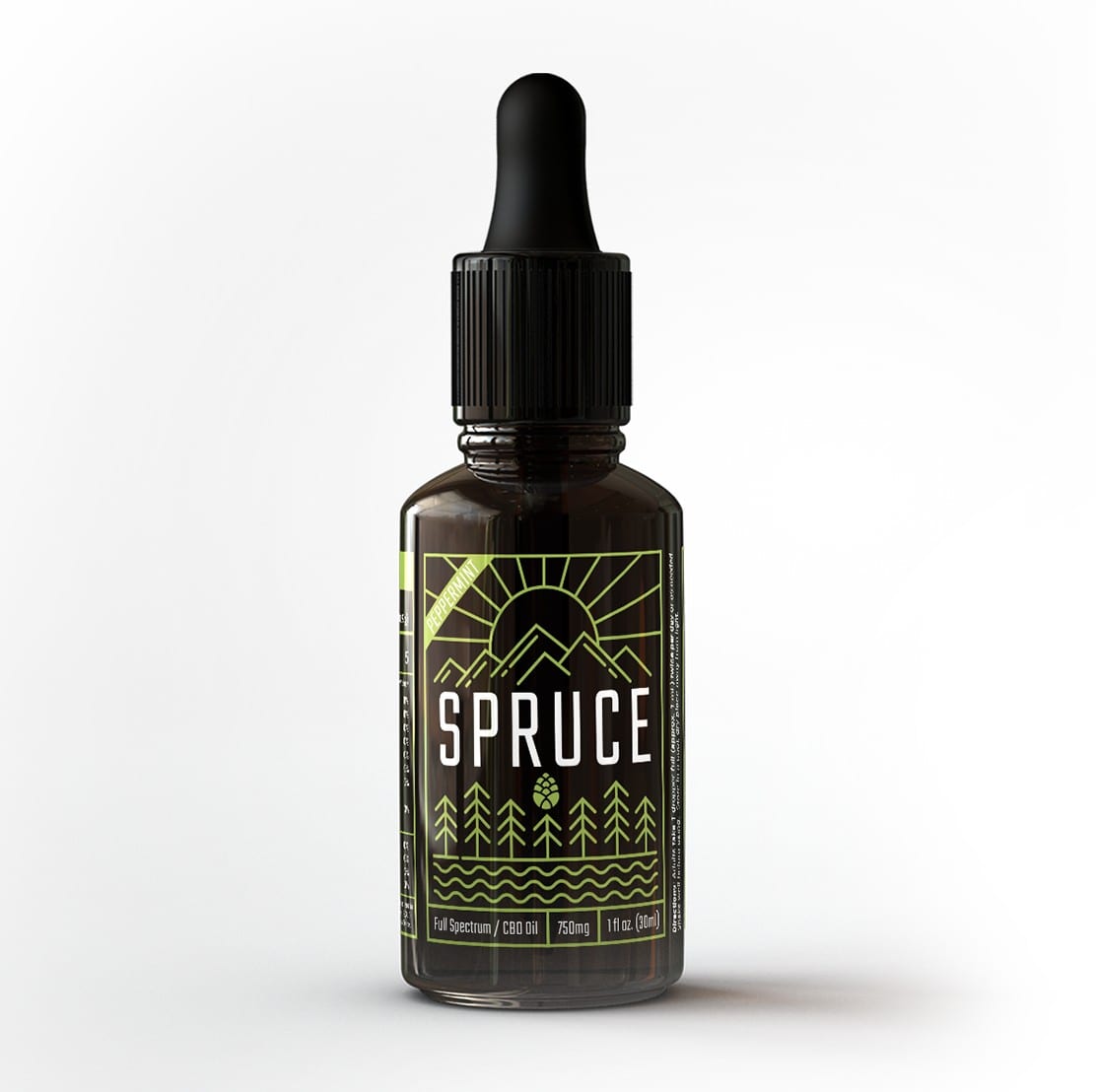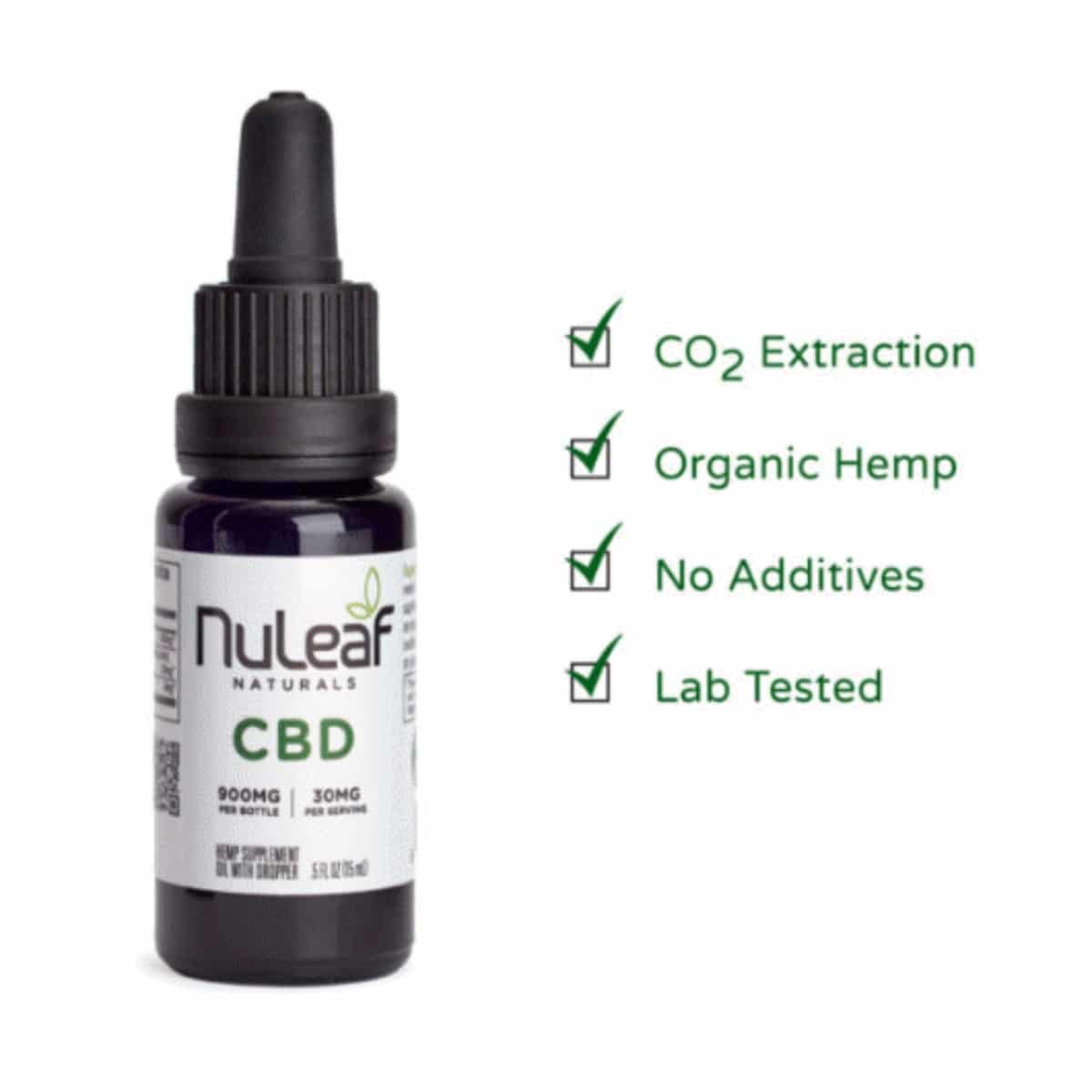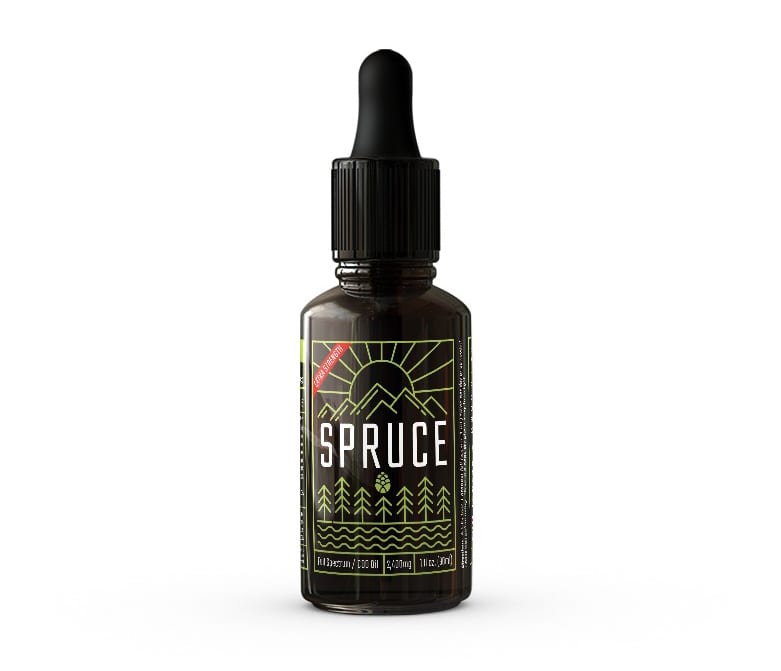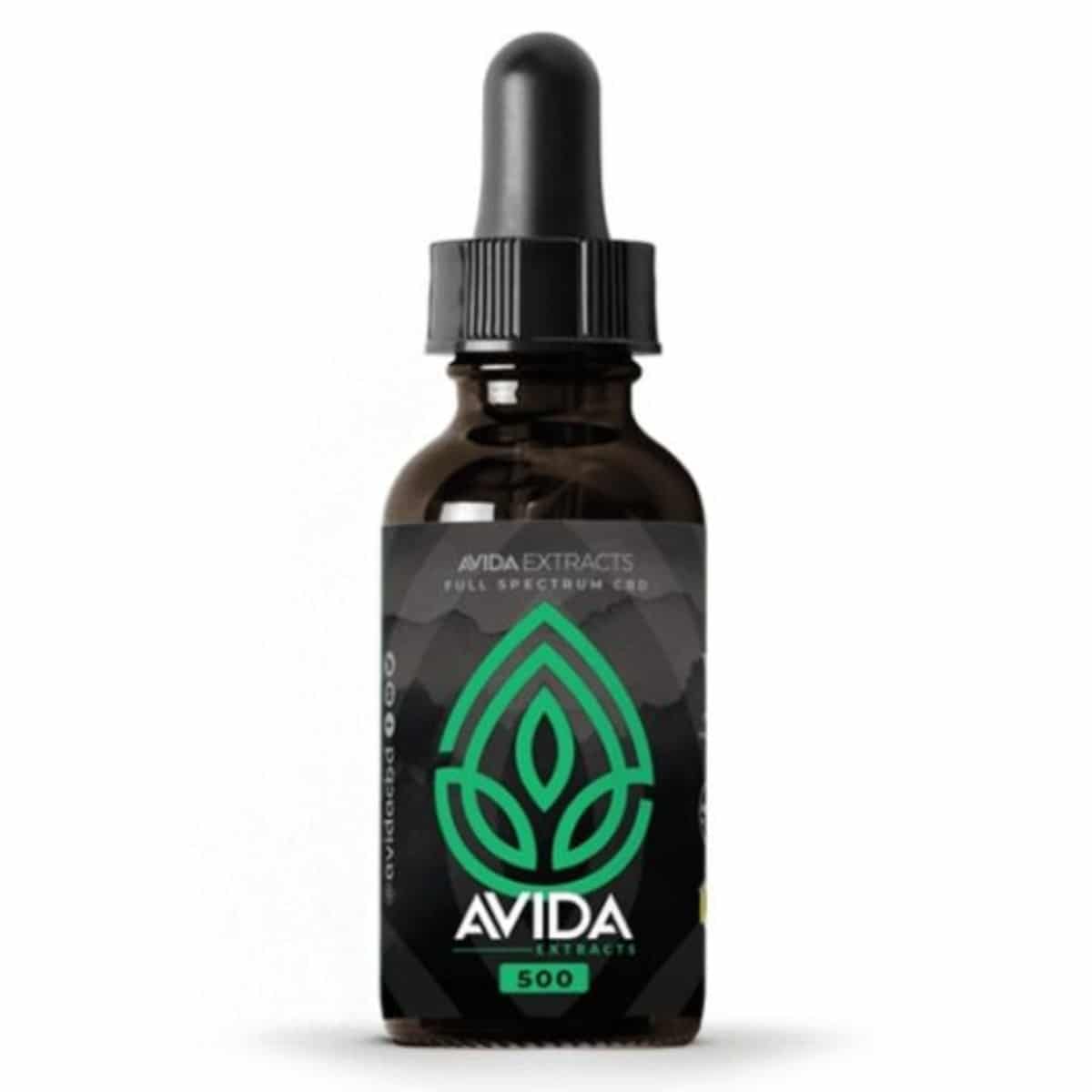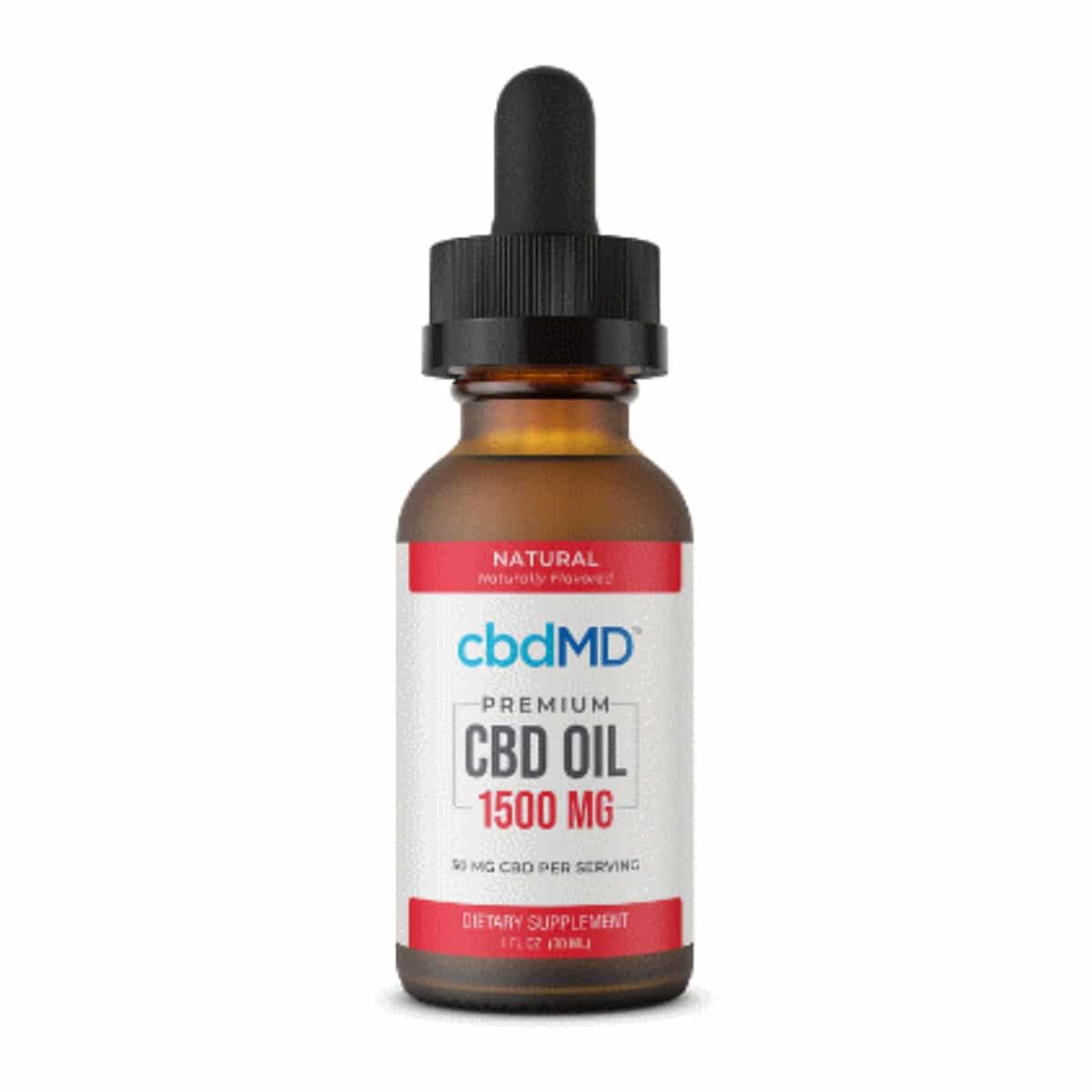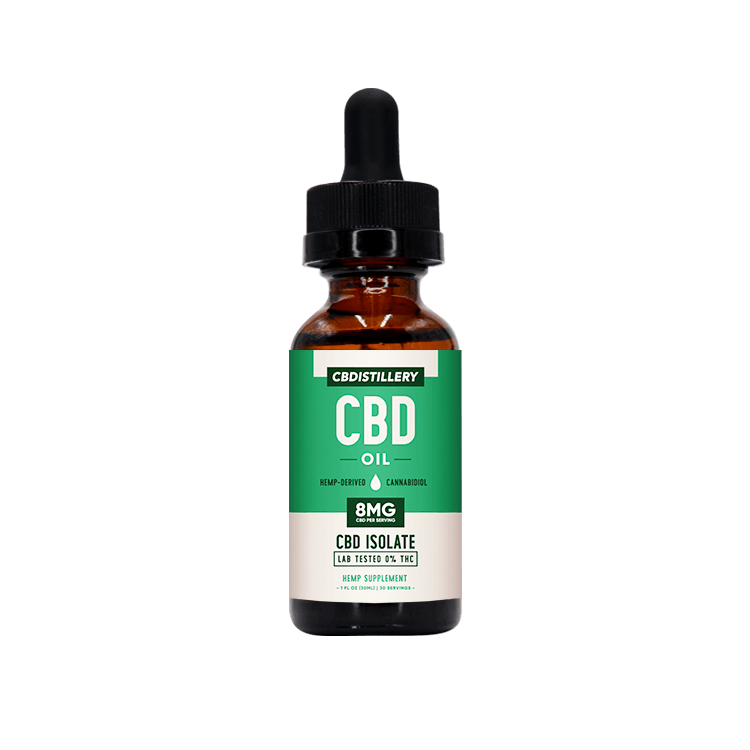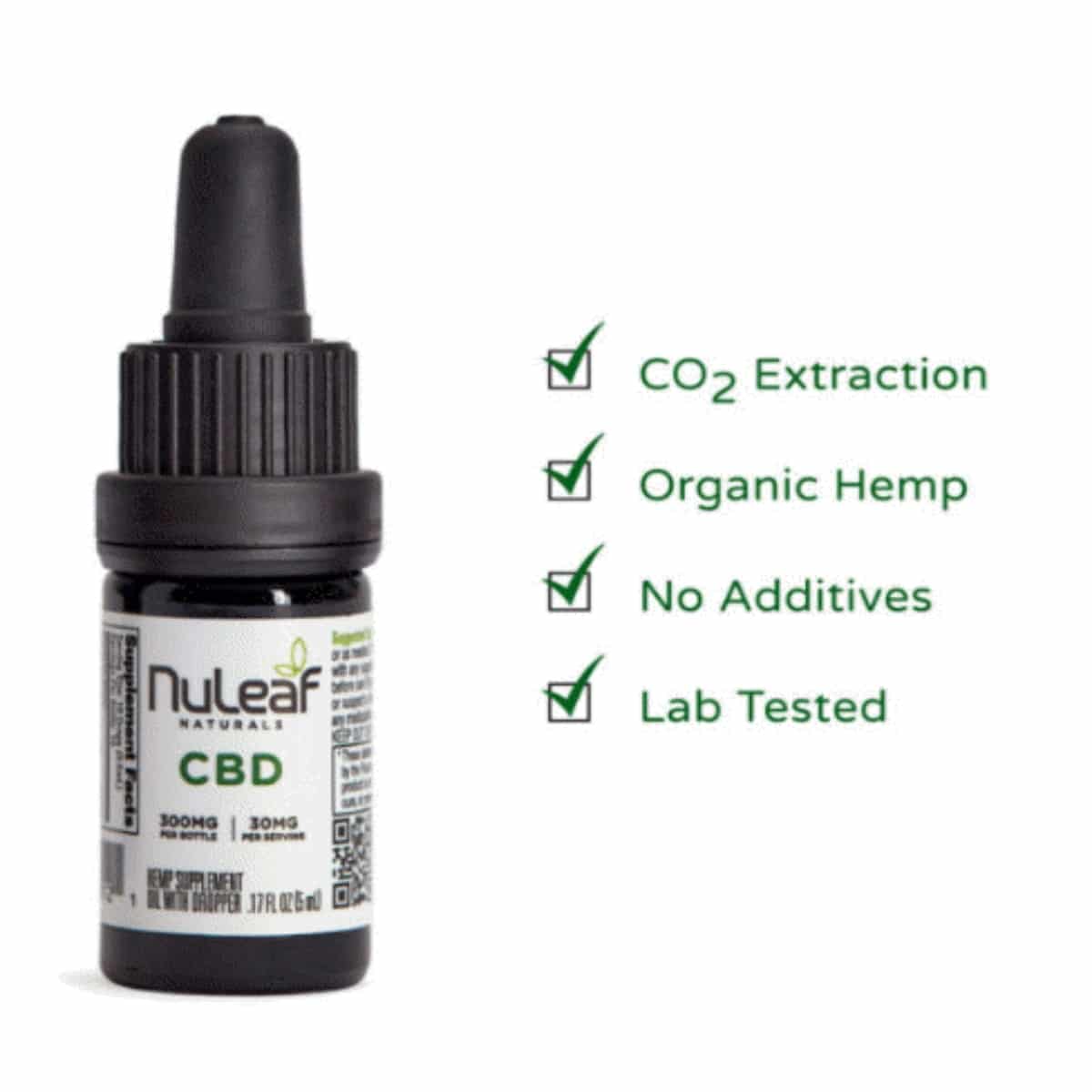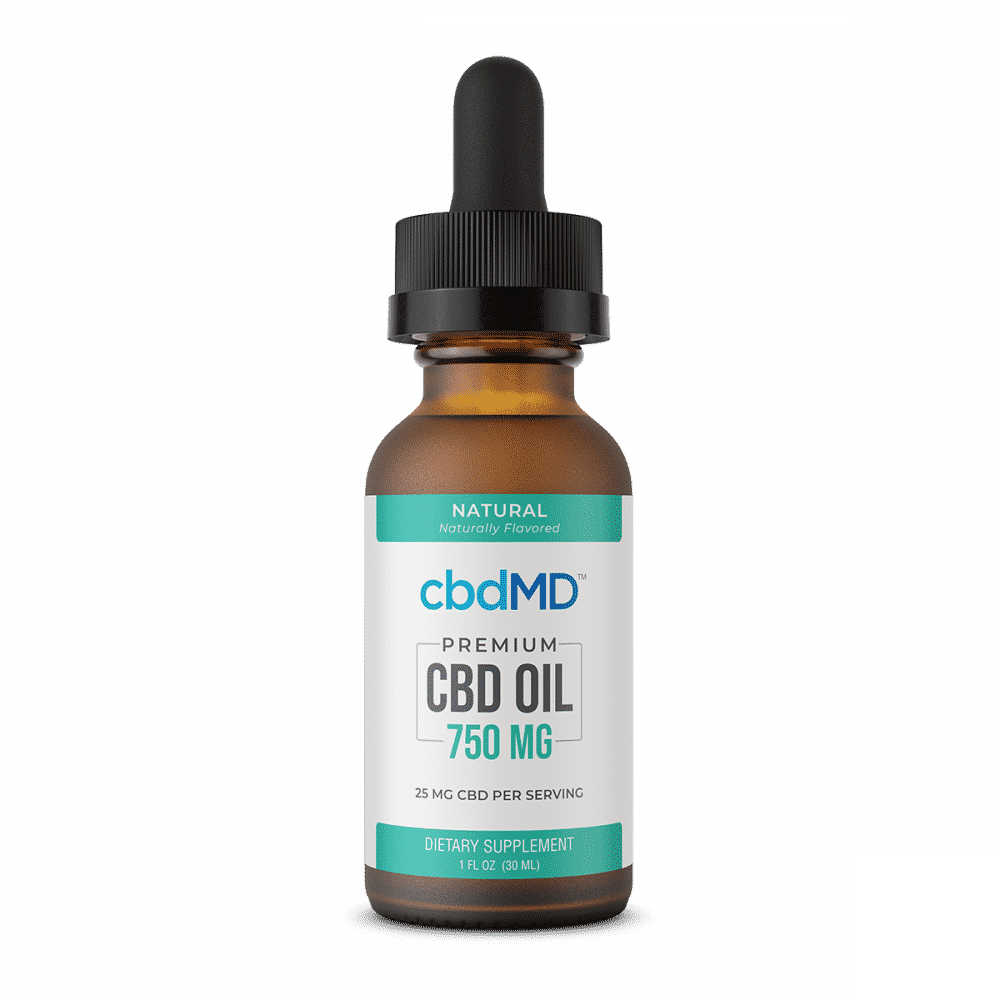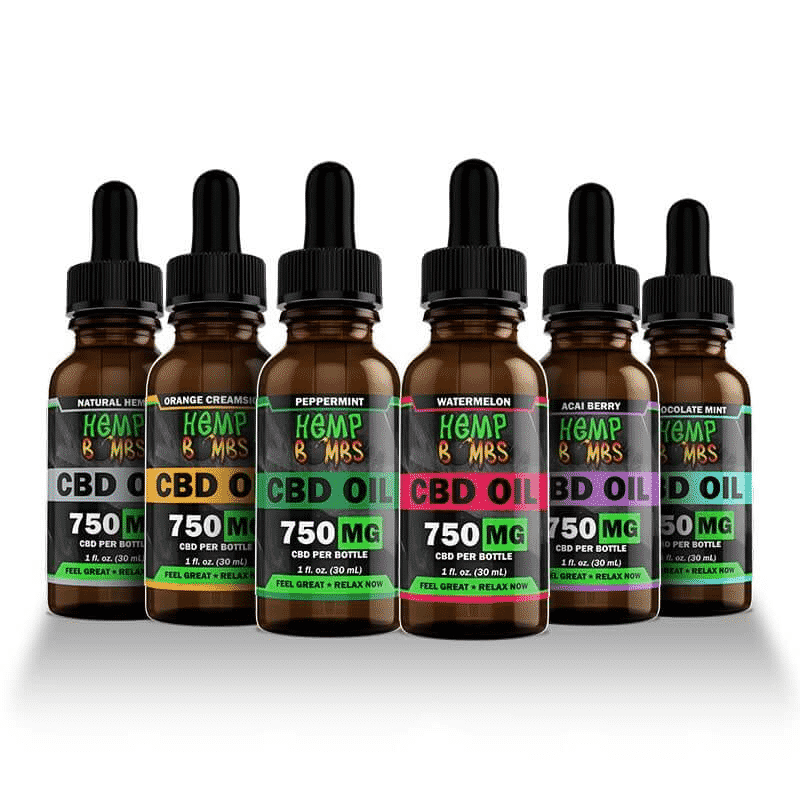Best CBD Oil for Autoimmune Diseases
Are you looking for hemp-derived CBD products that may help with autoimmune diseases? Here is an overview of the best CBD oil for autoimmune diseases to help you decide which product to choose to improve your quality of life.
Best CBD Oil for Autoimmune Diseases 2025
- Spruce 750mg Lab Grade CBD Oil Editor's Pick
- NuLeaf Naturals 900mg Full Spectrum Hemp CBD Oil Best Organic
- Spruce 2400mg Lab Grade CBD Oil Editor's Pick
- Avida Full Spectrum CBD Oil Tincture 500mg Best Seller
- cbdMD CBD Oil Tincture Natural 1500mg Best Natural Alternative
- CBDistillery THC Free CBD Oil Tinctures Best THC-Free
- cbdMD CBD Oil Tincture Natural 750mg Best Customer Rated
- NuLeaf Naturals 300mg Full Spectrum Hemp CBD Oil Best Starter
- Hemp Bombs 750mg CBD Oil Best Flavor Range
Compare the best CBD Oil for Autoimmune Diseases in 2022
Best CBD Oil for Autoimmune Diseases
1. Spruce 750mg Lab Grade CBD Oil
cbdc overall score
4.8
CBDC Evaluation Table/Score
| Pros | Cons |
|---|---|
|
Mid-strength |
No other flavors |
|
Natural peppermint flavor |
|
|
Made from 100% organic and natural ingredients |
Overview
Each bottle of the 750mg CBD oil tincture contains 25mg of CBD per dropper full. The oil is peppermint flavor to mask any unpleasant tastes related to CBD.
2. NuLeaf Naturals 900mg Full Spectrum Hemp CBD Oil
cbdc overall score
5.0
CBDC Evaluation Table/Score
| Pros | Cons |
|---|---|
|
Pure CBD hemp |
No other flavors |
|
All natural |
|
|
Approximately 300 drops total |
Overview
Natural remedy for various illnesses. NuLeaf Naturals’ CBD oil is a whole-plant extract containing a full spectrum of naturally occurring synergistic cannabinoids and terpenes.
3. Spruce 2400mg Lab Grade CBD Oil
cbdc overall score
5.0
CBDC Evaluation Table/Score
| Pros | Cons |
|---|---|
|
Extra Strength |
Tastes bitter |
|
No artificial flavoring or colors |
No THC-free option |
|
Made from 100% organic and natural ingredients |
Overview
The largest bottle of CBD oil that Spruce offers contains 2,400mg of CBD. This is full-spectrum CBD oil, which is the maximum possible potency. Each high potency dropper full contains 80mg of CBD. There are no flavorings in it, which allows for the most CBD to fit in the 30ml bottle.
4. Avida Full Spectrum CBD Oil Tincture 500mg
cbdc overall score
4.6
CBDC Evaluation Table/Score
| Pros | Cons |
|---|---|
|
Light Spearmint flavor |
No other flavor |
|
Non-THC, Non-detected in drug test |
Overview
Avida Extracts Full Spectrum CBD oil is the latest iteration of the brand’s advanced Avida CORE Spectrum technology. They use a proprietary full spectrum blend, resulting in the highest naturally occurring Phyto-cannabinoids and Terpenes with THC (<0.3) to support your health.
5. cbdMD CBD Oil Tincture Natural 1500mg
cbdc overall score
4.7
CBDC Evaluation Table/Score
| Pros | Cons |
|---|---|
|
Various delicious flavors to choose from |
cbdMD uses MCT as its carrier oil so individuals who are allergic with coconuts should consider other brand options |
|
Has vegan, organic, and gluten-free ingredients |
|
|
Free shipping for this particular product within USA |
|
|
World-class customer service team |
Overview
cbdMD’s CBD oil tinctures are made using only CBD sourced from medical hemp and MCT oil as a carrier oil. Tinctures are offered in orange, mint, natural, and berry flavors. Safe for daily use, the oil tinctures are packaged with a built-in rubber dropper to adjust CBD dosage easily. The packaging is made to be easy to transport and discreet to use.
6. CBDistillery THC Free CBD Oil Tinctures
cbdc overall score
4.4
CBDC Evaluation Table/Score
| Pros | Cons |
|---|---|
|
60-Day Satisfaction Guarantee |
Dropper is a bit shaky |
|
Various strengths |
|
|
Oil extracted from aerial plant parts of US grown industrial hemp |
|
|
Sourced from non-GMO industrial hemp grown in the USA through natural farming practices |
Overview
CBDistillery’s Isolate CBD Oil Tinctures harness the power of pure CBD. CBD Isolate Oil Tinctures include 0.0% THC. When you use CBDistillery CBD Isolate Oil Tinctures, you can be assured you’re using the highest quality CBD on the market.
7. NuLeaf Naturals 300mg Full Spectrum Hemp CBD Oil
cbdc overall score
4.6
CBDC Evaluation Table/Score
| Pros | Cons |
|---|---|
|
Pure CBD hemp |
No other flavors |
|
All natural |
A bit pricey compared to competitors |
|
Approximately 100 drops total |
Overview
This is one of several concentrations from NuLeaf Naturals. As the lowest concentration, it is the company’s best option for those new to CBD oil. The product is lab-tested and fully organic. It is full-spectrum, so it contains THC in small quantities.
8. cbdMD CBD Oil Tincture Natural 750mg
cbdc overall score
4.4
CBDC Evaluation Table/Score
| Pros | Cons |
|---|---|
|
Vegan and Gluten free |
Does not ship internationally |
|
Has a third-party lab test |
|
|
Wide variety of CBD strengths and sizes |
Overview
A 750mg bottle of cbdMD’s Broad Spectrum Oil Tincture does not contain THC. It also has a fairly wide flavor range which is perfect for those who prefer other taste. Vegan consumers are considered since cbdMD offers Vegan products. Aside from all of that, another reason why people love cbdMD is because it’s free from harmful chemicals.
9. Hemp Bombs 750mg CBD Oil
cbdc overall score
3.9
CBDC Evaluation Table/Score
| Pros | Cons |
|---|---|
|
Wide variety of flavors |
Incomplete information about the product |
|
Lab test results are complete |
Does not ship to all international countries |
|
30-day money-back guarantee |
Overview
Hemp Bombs offer CBD Oil Tinctures that come in a 30ml bottle containing 750mg of CBD. They provide a wide range of flavors perfect for those that have a knack for sweets. Consumers can safely intake this because it’s free of chemicals and pesticides. Hemp Bombs also offer a 20% off on products upon subscription.
How CBD Helps With Autoimmune Diseases
Cannabidiol (CBD) is a plant-derived cannabinoid. CBD has a structural similarity to tetrahydrocannabinol (THC), the primary psychotropic substance in cannabis. THC is responsible for the euphoric high people experience after using marijuana(1).
Meanwhile, cannabidiol is non-psychoactive and bicyclic, comprising two fused rings in the molecule structure. CBD contains an aromatic ring and terpene, a fragrant compound found in plants(2).
Moreover, CBD produces biological effects in the central nervous system (CNS). Although the chemical is active in the CNS, it does not create a euphoric effect, unlike THC(3).
Based on a 2020 review published in Cannabis and Cannabinoid Research, CBD contains anti-inflammatory properties. It is also immune suppressive(4).
A person’s immunity is maintained through numerous cell types, such as myeloid cells, acting together to protect against foreign substances(5).
Myeloid cells or blood cells comprise the innate immune system, which destroys pathogens or organisms that cause various diseases(6).
The human immune system is made up of two parts: innate and adaptive(7).
The purpose of the innate response is to prevent the spread of pathogens throughout your body. It is your body’s first line of defense against germs, whereas the adaptive response explicitly targets the germs that cause the infection(8).
In an event where there is an insufficient innate reaction, some innate cells can activate the adaptive immune response, composed of T and B cells(9).
T cells are white blood cells that stimulate B cells. Meanwhile, B cells fight viruses and bacteria by producing antibodies that neutralize pathogens(10).
According to the researchers, the effect of cannabidiol on immune response can involve innate or adaptive responses. Research authors Nichols and Kaplan suggested CBD may cure autoimmune diseases by directly suppressing various resistant cell types(11).
Autoimmune diseases occur when your body fails to differentiate your cells from foreign cells. Thus, your immune system mistakenly attacks your healthy tissues(12).
The endocannabinoid system (ECS) plays a vital part in the central nervous system development and the response to endogenous and environmental insults(13).
The ECS is composed of cannabinoid receptors, namely, CB1 and CB2. Both receptors are found throughout the CNS, in the immune system, and other body organs(14).
The ECS has its chemical messengers called endocannabinoids that interact with CB1 and CB2 receptors(15).
CB1 receptors have a significant role in motor regulation, memory processing, appetite, mood, sleep, and pain sensation. Meanwhile, CB2 receptors, when activated, stimulate a response that fights inflammation(16).
CBD indirectly interacts with your ECS, signaling it to produce more of its natural cannabinoids. In addition, it inhibits the enzyme that breaks it down.
This reaction results in more endocannabinoids circulating in your body for a longer duration(17). Your body uses these endocannabinoids efficiently and returns to homeostasis(18).
Homeostasis is your body’s capacity to maintain the stability of different variables, such as water level, acidity, and temperature, in the event of constant environmental disturbance(19).
Although the existing research on CBD for autoimmune diseases is promising, longitudinal clinical studies are needed to determine CBD’s effectiveness in dealing with autoimmune conditions.
Benefits of Using CBD for Autoimmune Diseases
CBD’s neuroprotective and immunosuppressive mechanisms make it an ideal therapeutic candidate for multiple sclerosis (MS)(20).
MS is a neurodegenerative autoimmune condition of the central nervous system in which the body’s immune system attacks its tissues(21).
Multiple sclerosis affects 2.5 million people globally. Usually, the age of onset is 30 years old, and symptoms differ for each individual with the condition, depending on the lesion locations within the CNS(22).
Animal models of MS often used in a laboratory environment to study multiple sclerosis are Theiler’s murine encephalomyelitis virus (TMEV) and the experimental autoimmune encephalomyelitis model(23).
Research from the British Journal of Pharmacology successfully demonstrated that a 5mg/kg i.p. (intraperitoneal injection) of CBD administered at the onset of the disease may help the activation of microglia, the resident immune cells of the CNS(24).
Intraperitoneal injection is the injection of a substance into the body cavity.
Results also showed that CBD administration may attenuate the T cell infiltration into the CNS using the EAE(25).
On the other hand, cannabidiol showed similar effects in the TMEV model in a study from the journal of Neurobiology of Disease(26).
The researchers demonstrated that 5mg/kg i.p. of CBD administered for the first ten days following the start of the disease may reduce neuroinflammation and clinical condition. They also hypothesized that CBD may help decrease immune cell trafficking signals in the CNS and microglial activation(27).
Despite the promising results of these studies, it is still unclear if the successful outcome with CBD in the animal models of MS can also be observed in MS patients and those with an autoimmune disease.
CBD at 20mg/kg was also administered to patients with Crohn’s disease, an inflammatory bowel disease. The researchers stated that, while CBD was safe to use, the compound did not improve or worsen the condition(28).
Cannabidiol may reduce intestinal inflammation in other models of human inflammatory bowel disease(29).
However, further investigation is warranted to determine CBD’s effect on autoimmune diseases.
How Long After Taking CBD Will It Start to Help With an Autoimmune Disease?
Inhaling cannabidiol using vape pens is the fastest method of ingestion to benefit from the effects of CBD(30). However, vaping may be detrimental to the lungs(31).
On the other hand, the second quickest way to absorb CBD is through sublingual administration. Taking the compound under the tongue ensures its prompt delivery into the system(32).
Research from the Journal of Young Pharmacists stated that fast-dissolving oral films are a popular choice among people taking medical substances.
These films are easy to administer. More importantly, the sudden onset of drug action is possible since they are taken through the sublingual route(33).
Better compliance from individuals with the condition is also expected when the sublingual method is used.
Taking a sublingual tablet does not require swallowing since it works much faster when absorbed through the lining of the mouth. This method may benefit those people with dysphagia or individuals with swallowing difficulties(34).
You may use droppers to dispense CBD oil or tinctures straight into your mouth. It commonly takes about 15 to 30 minutes for the compound to take effect(35).
Meanwhile, CBD edibles, such as gummies and capsules, may take longer to work, with some individuals feeling their effects 30 minutes or more after intake(36).
You may also consider topical CBD products like CBD creams and lotions for your skin.
However, with topicals, you only target specific areas of the body or system. CBD may not take effect quickly because the compound does not reach the bloodstream.
Still, these characteristics make them safer, considering the lack of information on cannabidiol’s long-term safety(37).
After CBD Starts to Help, How Long Will It Last?
Ingestion methods have varying rates of bioavailability, or the extent a substance or a drug becomes available to its biological destination. In other words, bioavailability is a measure of the rate and fraction of a drug’s initial dose(38).
A study published in Frontiers Pharmacology reviewed the discrepancy in the pharmacokinetics of cannabidiol. It also examined the lack of data regarding CBD despite its widespread use in humans(39).
A systematic search was done to retrieve all articles about pharmacokinetic data of CBD in humans. Out of the 792 retrieved articles, 24 included pharmacokinetic parameters in humans(40).
Pharmacokinetics involves the time course of drug absorption, distribution, metabolism, and excretion(41).
Results showed that the half-life of CBD is between 1.4 and 10.9 hours after oromucosal spray, two to five days after chronic oral administration, 24 hours after intravenous medications, and 31 hours after smoking(42).
Half-life refers to the time it takes for a drug in the system to be reduced by 50%. After one half-life, a compound’s concentration in the body becomes half of the starting dose.
Results showed that CBD bioavailability after smoking is 31%. However, no other studies have attempted to report the absolute bioavailability of CBD following different routes in humans, despite intravenous formulations being available(43).
The analysis of properties, such as bioavailability and half-life is critical to future therapeutic success. Robust data from various formulations are required.
Risks and Side Effects of CBD for Autoimmune Diseases
Although studies showed that cannabidiol is relatively safe to consume(44), there is no evidence linking CBD to specific autoimmune disease medication.
Thus, further studies are needed to determine CBD’s effectiveness on the entire body over long-term consumption.
Below are common side effects of CBD(45):
- Changes in alertness, such as drowsiness or sleepiness
- Gastrointestinal distress, such as decreased appetite and diarrhea
- Changes in mood, such as irritability and agitation
How to Take CBD for Autoimmune Diseases
For autoimmune disorders, you may take CBD oil in consumable forms, such as brownies, gummies, and soft gel capsules.
For a controlled CBD intake, you may choose sublingual administration instead. In this method, you may use a calibrated dropper usually included in CBD tincture products.
Begin by applying a few oil drops under your tongue and leave the oil for a few seconds before swallowing for better absorption.
Some CBD brands also sell CBD topical products. CBD topicals may be in the form of cream, lotion, or transdermal patches.
Research published in the British Journal of Pharmacology showed that transdermal delivery is utilized to produce clinical effects, such as anti-inflammatory activity and local anesthesia, deep within or beneath the skin(46).
Transdermal drug delivery offers compelling opportunities to address the low bioavailability of several oral drugs and the inconvenience and pain of injections(47).
A transdermal system is non-invasive, allowing users to self-administer. In addition, transdermal patches may also improve an individual’s compliance.
Since the method is generally inexpensive(48), it may also be beneficial for those with a limited budget.
Administering topical CBD may be useful for autoimmune conditions that affect the skin. According to a 2021 study, atopic dermatitis (eczema), a chronic skin disorder, is associated with one or more autoimmune diseases(49).
In addition, a 2018 study showed that CBD exhibited anti-inflammatory properties in an experimental allergic contact dermatitis model(50). Therefore, topical administration of cannabidiol may benefit those with eczema.
Another method of CBD ingestion is vaping. However, note that CBD vapes may worsen lung disorders(51). When using CBD for the first time, make sure to consult with a licensed physician with a background in cannabidiol use.
Usage Guide
It is crucial to select high-quality CBD products to ensure overall wellness and optimal effectiveness. However, with many brands promising the best CBD products to their customers, you may find it challenging to decide which product to choose.
When choosing the best CBD oil for autoimmune disease, here are some things you need to consider:
- Read the ingredient list of the CBD product carefully. If possible, choose organic types or non-genetically modified (non-GMO) ingredients.
- Support CBD brands that are transparent about their farming practices. Visit their website and check if it includes information about CBD extraction and testing methods.
- Ensure that your CBD products come with certificates of analysis (COAs) and lab test results from third-party laboratories.
A third-party lab test is essential to determine the presence of harmful contaminants, such as residual solvents and pesticides. CBD products must be tested to ascertain their consistency and potency.
CBD Dosage for Autoimmune Disease
There have been no approved U.S. Food and Drug Administration (USFDA) guidelines for CBD dosing specifically for autoimmune diseases.
However, cannabidiol dosage in most clinical studies ranges from 100mg to 800mg(52). If you cannot tolerate 100mg, you may start with a lower amount unless your healthcare provider recommends a specific dosage.
It is highly recommended to speak with a physician experienced in cannabis use before trying CBD oil for autoimmune disease.
Legality of CBD
About 36 states in the United States have legalized medical marijuana. The remaining 14 states have ratified laws permitting the use of CBD extract(53).
You may travel with CBD but only between states with similar regulations for cannabidiol use.
The U.S. Congress approved the 2018 Farm Bill, legalizing industrial hemp and products obtained from the hemp plant(54).
According to the FDA, the redefinition of hemp made it distinct from cannabis plants under the Controlled Substance Act (CSA)(55).
The CSA issues the legal basis for the U.S. government’s “war on drugs,” a consolidated law on manufacturing and distributing drugs of all kinds(56).
The Controlled Substance Act or the Comprehensive Drug Abuse Prevention and Control Act of 1970 created a drug schedule to classify substances into five categories based on the medical use and potential for drug dependence(57).
Although numerous states have legalized recreational and medical marijuana, marijuana is still considered a Schedule I drug(58).
However, since hemp is now distinct from marijuana, the change may streamline the process for researchers to study cannabis derivatives that have no more than 0.3% THC by dry weight(59).
Cannabis derivatives, including cannabinoids, such as CBD, may advance the development of new drugs from those substances(60).
Product Frequently
Asked Questions
-
How can CBD help with autoimmune diseases?
A study in 2020 showed that CBD’s anti-inflammatory and immunosuppressive properties may help with human autoimmunity(61).
The researchers suggested that the compound may help with autoimmune diseases by directly suppressing different immune cell types(62).
-
What evidence or research exists to say that CBD helps with autoimmune diseases?
CBD’s neuroprotective and immunosuppressive properties make it an ideal therapeutic candidate for multiple sclerosis, an autoimmune disease of the central nervous system(63).
-
Is there evidence that CBD can make autoimmune diseases worse?
There is no direct link between CBD and worsening autoimmune diseases. However, using cannabidiol may induce side effects, such as drowsiness, diarrhea, and irritability(64).
-
Will CBD interact with any current medication I may be taking for autoimmune diseases?
There is no evidence of cannabidiol interacting with a particular autoimmune disease medication. However, there are risks of CBD interacting with other medicines, leading to possible adverse side effects(65).
-
Are there other treatments I should consider alongside CBD to help with autoimmune diseases?
You may use CBD topicals, like creams and lotions, alongside massage therapy to relieve chronic pain triggered by autoimmune diseases.
In 2017, a review in Complementary Therapies in Clinical Practice noted the benefits of massage on pain when used for autoimmune diseases, such as(66):
- Knee osteoarthritis
- Rheumatoid arthritis
- Joint pain
- Fibromyalgia
- Diabetes
- Dermatitis
- Multiple sclerosis
However, there is a lack of research and clinical trials on massage therapy and autoimmune conditions.
Meanwhile, a study showed that cannabinoids, such as CBD, may be used to manage difficult to treat pain(67). CBD may help bring about pain relief or alleviate chronic inflammation.
Still, it is best to consult your healthcare provider to avoid a potential reaction, especially if you plan to take CBD or hemp oil with any anti-inflammatory drugs and supplements.
-
Can I fail a drug test if I use CBD for autoimmune diseases?
Cannabidiol (CBD) is a non-psychoactive and non-intoxicating drug. However, high doses and frequent intake of CBD may result in a positive drug test.
-
What is the dosage for autoimmune diseases?
There are no official dosage guidelines for CBD. CBD as a medication has not been approved by the U.S. Food and Drug Administration (FDA).
The general rule is to go slow and start low. You may begin with a low CBD potency, gradually increasing the dosage until you get the desired effects.
The World Health Organization (WHO) reported that dosages in most clinical research studies usually range between 100 and 800mg of CBD daily(68).
-
How much CBD should I take?
If you are a first-time user and think you cannot tolerate the standard CBD dosage, you may opt for a microdose.
The recommended microdose for cannabidiol is 500mg CBD oil. Note that one drop of 500mg CBD oil contains approximately 2mg of CBD(69).
-
How do I choose the best CBD oil for autoimmune diseases?
You may choose CBD isolate, broad-spectrum, or full-spectrum CBD oil. Full-spectrum CBD oil contains all the natural elements of Cannabis sativa plants. Meanwhile, CBD isolate is the pure form of cannabidiol(70).
Make sure to consult with a physician expert in cannabis use before trying any CBD product.
Also, check a brand’s website and see if there is any product disclaimer. CBD brands need to be transparent with their consumers.
A third-party lab tests all products to determine whether they contain any heavy metals or residual solvents.
- Immune Responses Regulated by Cannabidiol
https://www.ncbi.nlm.nih.gov/pmc/articles/PMC7173676/ - Ibid.
- Ibid.
- Immune Responses Regulated by Cannabidiol
https://www.ncbi.nlm.nih.gov/pmc/articles/PMC7173676/ - Ibid.
- Ibid.
- The innate and adaptive immune systems
https://www.ncbi.nlm.nih.gov/books/NBK279396/ - Ibid.
- Immune Responses Regulated by Cannabidiol
https://www.ncbi.nlm.nih.gov/pmc/articles/PMC7173676/ - Ibid.
- Ibid.
- What Are Common Symptoms of Autoimmune Disease?
https://www.hopkinsmedicine.org/health/wellness-and-prevention/what-are-common-symptoms-of-autoimmune-disease - An introduction to the endogenous cannabinoid system
https://www.ncbi.nlm.nih.gov/pmc/articles/PMC4789136/ - A Look at the Endocannabinoid System’s CB1 and CB2 Receptors
https://echoconnection.org/look-endocannabinoid-systems-cb1-cb2-receptors/ - Ibid.
- Ibid.
- An introduction to the endogenous cannabinoid system
https://www.ncbi.nlm.nih.gov/pmc/articles/PMC4789136/ - Ibid.
- Homeostasis as the Mechanism of Evolution
https://www.ncbi.nlm.nih.gov/pmc/articles/PMC4588151/ - Immune Responses Regulated by Cannabidiol
https://www.ncbi.nlm.nih.gov/pmc/articles/PMC7173676/ - Multiple sclerosis
https://www.mayoclinic.org/diseases-conditions/multiple-sclerosis/symptoms-causes/syc-20350269 - Immune Responses Regulated by Cannabidiol
https://www.ncbi.nlm.nih.gov/pmc/articles/PMC7173676/ - Ibid.
- Cannabidiol inhibits pathogenic T cells, decreases spinal microglial activation and ameliorates multiple sclerosis-like disease in C57BL/6 mice
https://pubmed.ncbi.nlm.nih.gov/21449980/ - Ibid.
- Cannabidiol provides long-lasting protection against the deleterious effects of inflammation in a viral model of multiple sclerosis: a role for A2A receptors
https://pubmed.ncbi.nlm.nih.gov/23851307/ - Ibid.
- Low-Dose Cannabidiol Is Safe but Not Effective in the Treatment for Crohn’s Disease, a Randomized Controlled Trial
https://pubmed.ncbi.nlm.nih.gov/28349233/ - Cannabidiol and palmitoylethanolamide are anti-inflammatory in the acutely inflamed human colon
https://pubmed.ncbi.nlm.nih.gov/28954820/ - How to Safely Use CBD: Should You Inhale, Spray, Apply, or Eat It?
https://www.consumerreports.org/cbd/how-to-use-cbd-inhale-spray-apply-eat/ - Is It Safe to Vape CBD?
https://www.consumerreports.org/cbd/is-it-safe-to-vape-cbd/ - How to Safely Use CBD: Should You Inhale, Spray, Apply, or Eat It?
https://www.consumerreports.org/cbd/how-to-use-cbd-inhale-spray-apply-eat/ - Fast Dissolving Sublingual Films of Ondansetron Hydrochloride: Effect of Additives on in vitro Drug Release and Mucosal Permeation
https://www.ncbi.nlm.nih.gov/pmc/articles/PMC2964757/ - Ibid.
- How to Safely Use CBD: Should You Inhale, Spray, Apply, or Eat It?
https://www.consumerreports.org/cbd/how-to-use-cbd-inhale-spray-apply-eat/ - Ibid.
- Ibid.
- Drug Bioavailability
https://www.ncbi.nlm.nih.gov/books/NBK557852/ - A Systematic Review on the Pharmacokinetics of Cannabidiol in Humans
https://www.ncbi.nlm.nih.gov/pmc/articles/PMC6275223/ - Ibid.
- Introduction to Pharmacokinetics and Pharmacodynamics
https://www.ashp.org/-/media/store%20files/p2418-sample-chapter-1.pdf - A Systematic Review on the Pharmacokinetics of Cannabidiol in Humans
https://www.ncbi.nlm.nih.gov/pmc/articles/PMC6275223/ - Ibid.
- Safety and side effects of cannabidiol, a Cannabis sativa constituent
https://pubmed.ncbi.nlm.nih.gov/22129319/ - What You Need to Know (And What We’re Working to Find Out) About Products Containing Cannabis or Cannabis-derived Compounds, Including CBD
https://www.fda.gov/consumers/consumer-updates/what-you-need-know-and-what-were-working-find-out-about-products-containing-cannabis-or-cannabis - Transdermal patches: history, development and pharmacology
https://www.ncbi.nlm.nih.gov/pmc/articles/PMC4403087/ - Transdermal drug delivery
https://www.ncbi.nlm.nih.gov/pmc/articles/PMC2700785/ - Ibid.
- Association between atopic dermatitis and autoimmune diseases: a population-based case-control study
https://pubmed.ncbi.nlm.nih.gov/33091150/ - Anti-inflammatory Properties of Cannabidiol, a Nonpsychotropic Cannabinoid, in Experimental Allergic Contact Dermatitis
https://pubmed.ncbi.nlm.nih.gov/29632236/ - Pulmonary Toxicity and the Pathophysiology of Electronic Cigarette, or Vaping Product, Use Associated Lung Injury
https://www.frontiersin.org/articles/10.3389/fphar.2019.01619/full - Cannabidiol (CBD)
https://www.who.int/medicines/access/controlled-substances/5.2_CBD.pdf - States with Legal Cannabidiol (CBD)
https://medicalmarijuana.procon.org/states-with-legal-cannabidiol-cbd/ - H.R.2 – Agriculture Improvement Act of 2018
https://www.congress.gov/bill/115th-congress/house-bill/2/text - Hemp Production and the 2018 Farm Bill
https://www.fda.gov/news-events/congressional-testimony/hemp-production-and-2018-farm-bill-07252019 - Comprehensive Drug Abuse Prevention and Control Act of 1970
https://www.findlaw.com/criminal/criminal-charges/comprehensive-drug-abuse-prevention-and-control-act-of-1970.html - Ibid.
- Ibid.
- Hemp Production and the 2018 Farm Bill
https://www.fda.gov/news-events/congressional-testimony/hemp-production-and-2018-farm-bill-07252019 - Ibid.
- Immune Responses Regulated by Cannabidiol
https://www.ncbi.nlm.nih.gov/pmc/articles/PMC7173676/ - Ibid.
- Immune Responses Regulated by Cannabidiol
https://www.ncbi.nlm.nih.gov/pmc/articles/PMC7173676/ - What You Need to Know (And What We’re Working to Find Out) About Products Containing Cannabis or Cannabis-derived Compounds, Including CBD
https://www.fda.gov/consumers/consumer-updates/what-you-need-know-and-what-were-working-find-out-about-products-containing-cannabis-or-cannabis - An Update on Safety and Side Effects of Cannabidiol: A Review of Clinical Data and Relevant Animal Studies
https://pubmed.ncbi.nlm.nih.gov/28861514/ - Massage therapy research review
https://www.ncbi.nlm.nih.gov/pmc/articles/PMC5564319/ - Cannabinoids in the management of difficult to treat pain
https://www.ncbi.nlm.nih.gov/pmc/articles/PMC2503660/ - Cannabidiol (CBD)
https://www.who.int/medicines/access/controlled-substances/5.2_CBD.pdf - Ibid.
- Cannabidiol primer for healthcare professionals
https://www.ncbi.nlm.nih.gov/pmc/articles/PMC7340472/

